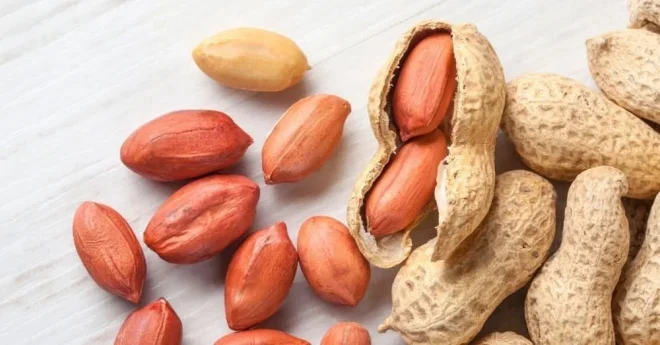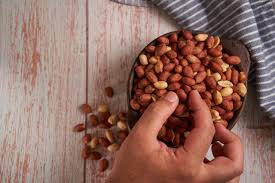
Peanuts for Weight Loss: 5 Great Ways to Add Peanuts to Your Diet
Peanuts contain many nutrients and are considered a good addition to your diet. But can they help you lose weight? Let’s see.
When it comes to losing weight, most people sweat it out in the gym but rarely pay attention to what they eat. Experts say the key to losing weight is a healthy diet and exercise. If you’re trying to lose weight, don’t forget to snack on them. Peanuts can promote weight loss, and if you enjoy munching on peanuts, they can help you lose more weight. Contrary to popular belief that peanuts make you gain weight, peanuts can actually help you lose weight. They’re packed with nutrients and healthy fats, so it’s important to understand that they’re suitable for a weight loss diet. Learn how peanuts can help you lose weight and how you can incorporate them into a healthy diet.
What are peanuts?
Although the name suggests, peanuts are not nuts but legumes. They grow in the form of pods on the ground and are commonly called peanuts. Peanuts are a popular snack around the world, known for their delicious flavor and many health benefits. A study published in the Journal of Food Science and Technology found that they are a good source of protein, fiber, healthy fats, and various vitamins and minerals, making them a healthy, clean, and wholesome diet. Yes, they have fat too, but it is healthy fat, it does not make you gain weight but it makes you lose weight.

Peanuts for Weight Loss: Do They Work?
Despite their high calorie content, peanuts can help you lose weight when eaten in moderation. Here’s how:
1. Contains nutrient-dense nutrients
Peanuts are packed with essential nutrients, making them a great snack. They’re a good source of protein, fiber, and healthy fats. Peanuts also contain many vitamins and minerals, including vitamin E, magnesium, potassium, and folate. A study published in Food and Nutrition Science found that these foods work together to provide a balanced, satisfying snack that can contribute to health and well-being.
2. High in fiber
A study published in the Journal of Food Science and Technology found that peanuts are a good source of fiber and carbohydrates that cannot be digested by the body. Fiber plays an important role in digestion and increases satiety. The fiber in peanuts helps slow digestion and prevent sudden and post-crisis blood sugar spikes. This helps control appetite and prevent overeating, making peanuts a satisfying snack.
3. Healthy fats
Peanuts are a good source of unsaturated fats, which are thought to be good for the heart. These fats are essential for overall health and can help you feel full without taking in too many calories. Unsaturated fats help lower cholesterol and improve cardiovascular health. Unlike saturated fats, which are often found in unhealthy snacks and processed foods, unsaturated fats are good for your health.
4. Makes you feel full
Peanuts are rich in nutrients and help maintain a healthy diet. When you eat peanuts, the combination of protein, fiber, and healthy fats provides a satisfying snack. This helps prevent overeating and reduces the likelihood of unhealthy meals. By being mindful and making peanuts a part of a healthy diet, you can manage your weight and improve your overall health.

Are there any side effects of peanuts?
Although peanuts are generally safe for most people, some people may be allergic to them. Peanuts can cause serious and life-threatening illnesses, so it’s important to understand your allergy and avoid peanuts if necessary.
Here are some side effects, as experts have noted:
- Calorie Density – Peanuts are rich in nutrients, but they’re also high in calories. Eating too much can cause weight gain instead of weight loss. If you are trying to lose weight by adding peanuts to your diet, control is very important.
- Anaphylaxis – An allergic reaction to peanuts. Even a very small amount can cause serious reactions, including anaphylaxis, in people with peanut allergies.
- Oxalate content – Peanuts contain oxalates, and large amounts of oxalates can cause kidney stones in people who are injured.
- Potential for aflatoxin contamination – Peanuts may be contaminated with aflatoxin, a mycotoxin that can be harmful to health when consumed in large quantities over a long period of time.
- Digestive issues – For some people, peanuts can cause bloating, gas, or other digestive issues, especially when eaten in large amounts.
If you have concerns about eating peanuts, it’s best to consult a doctor.
